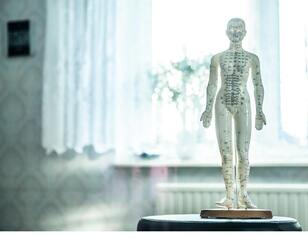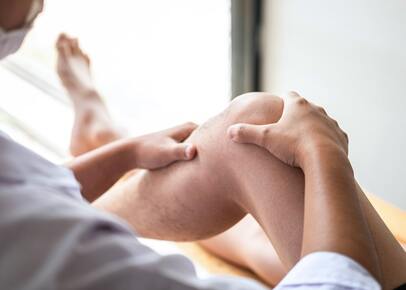Here are a few of the key reasons why sleep is so essential (in case you aren't convinced!):
- Rest and restoration: During sleep, the body works to repair and restore cells and tissues, boost the immune system, and conserve energy.
- Brain function: Sleep is critical for cognitive processes such as memory consolidation, learning, attention, and decision-making.
- Emotional regulation: Getting adequate sleep can help regulate mood, reduce stress, and improve emotional well-being.
- Physical health: Sleep has been linked to a lower risk of chronic diseases such as obesity, diabetes, cardiovascular disease, and certain types of cancer.
- Performance: Sleep is essential for optimal performance in physical and mental activities such as exercise, work, and academics.
So as you can see, sleep is something that needs to be prioritized! If you are not sleeping well, you are not laying one of the very important foundations for health. At our acupuncture and wellness clinic in Jacksonville, Florida, we help people every day with getting better rest at night!
Here are a few nutrition, lifestyle and functional medicine tips that can enhance your sleep... Start improving your health today by getting better sleep!
- I know everyone has heard the advice to shut down electronic devices at least an hour before bedtime. If you're having trouble with sleeping, you should really follow this one. Some people can benefit from even two or three hours before bedtime. Or at the very least wear blue light blocking glasses at night and definitely set your devices to limit blue light a certain number of hours before bed (flux is a good one to use on your laptop, and many phones and tablets have this feature built-in, you just have to activate it). You can use this time before bed for reading (not anything stressful!), meditating, praying, journaling, doing gentle yoga, etc. Make a commitment to having the last hour before bedtime being peaceful and you'll see changes in your sleep.
- If you have trouble sleeping, definitely watch the amount and timing of your caffeine consumption. Aim for just one cup of coffee in the morning, and definitely don't have any in the afternoon. Caffeine has a relatively long half-life, meaning it takes quite a while to get out of your body. Instead of an afternoon cup, try taking a 15-minute power nap or a 15-minute power walk to revive yourself. I often recommend my patients who have insomnia or anxiety issues to get off caffeine and coffee completely and most will see a dramatic improvement in their sleep.
- Take a bath or hot shower before bedtime. The body cooling down can trigger the production of melatonin, the hormone that makes us sleep. When we heat our body in a shower and then our body cools off, this triggers that production. Bonus if you use calming essential oils in your bath such as lavender, vetiver, sandalwood, rose, etc.
- Balance your blood sugar. Blood sugar dips in the middle of the night can cause our body to go into fight or flight mode, which wakes us up. Make sure you're eating whole foods throughout the day and limiting sugar and processed foods. Eat regularly to avoid dips in blood sugar. Most people do well to not eat a few hours before bed, but for some people with a heightened stress response or adrenal issues, they might need a snack before bed to get through the night. Keeping balanced portions of carbohydrates, protein and some healthy fat at all meals, but especially dinner is important for sleep.
- Keeping your room dark, cool and quiet really does work. Get really strong blackout curtains or blinds to make your room pitch black. Cover up lights that may be coming from alarm clocks and definitely keep your phone in another room. Turn the thermostat down to stay comfortably cool (some sleep experts say as low as 68 degrees, that's personally too chilly for me, but I like it around 71...I think this is a personal choice and takes experimentation to figure out what temperature works for you). Use earplugs if you need to, to keep things nice and quiet. Darkness and cool temperatures are two things that really help to increase melatonin production.
- Keeping a regular daily schedule (getting up and going to sleep at roughly the same time) is important for maintaining your sleep-wake cycle. Try to get some sun in the early parts of the day, which will help to raise cortisol in the time of day it should be raised (morning). This will help you feel more energetic in the morning. Then in the afternoon and evening, we want to start having warmer and dimmer lighting to reduce cortisol and prepare for melatonin to raise at night. It's important to make yourself go to bed at a reasonable hour (I recommend at least before 11 pm) to keep yourself on a good schedule. I know it's not fun to make yourself go to bed, but just put yourself in the role of the parent and tell yourself you need to do it in order to keep the vibrant health that you want!
- Some nutrients and herbs that can help with calming are calcium, magnesium, l-theanine, ashwagandha, chamomile, lemon balm and GABA. I generally only recommend supplemental melatonin for short periods of time if you're jet-lagged (very useful for re-setting circadian rhythms) or if you're under extreme stress. It's better, in my humble opinion, to provide the right environment and circumstances for your body to make melatonin on its own. The reason for this is that if your body is able to make melatonin on its own, that means your body is much more happy and more balanced, rather than having to rely on an outside source of the melatonin hormone.
- A functional medicine test that can be helpful for sleep is a 4-point cortisol test, also called an Adrenal Stress Profile or an Adrenal Stress Index. The adrenal glands are part of your endocrine (hormonal) system. They sit on top of your kidneys and they produce all of your stress hormones such as cortisol, adrenaline and norepinephrine. This test can look at the output of cortisol 4 times throughout the day to make sure that it is not too high or too low. Optimal cortisol function is very important for stress, mood, energy, and proper sleep. Imbalances, whether too high or too low, can cause you to feel poorly. The tricky thing is that sometimes high and low cortisol can mimic each other, so that's why it's really helpful to get tested. Treatments for high and low cortisol are different, so having a baseline from the test is a wonderful place to start before starting to throw random supplements at the problem! We offer this test from ZRT Labs, a leader in functional medicine testing, at our clinic for $170.
I hope that this information proves helpful and sweet dreams to you this evening! If you live in the Jacksonville, Florida area we'd be happy to help you get better sleep through acupuncture treatments, nutrition and functional medicine.




 RSS Feed
RSS Feed